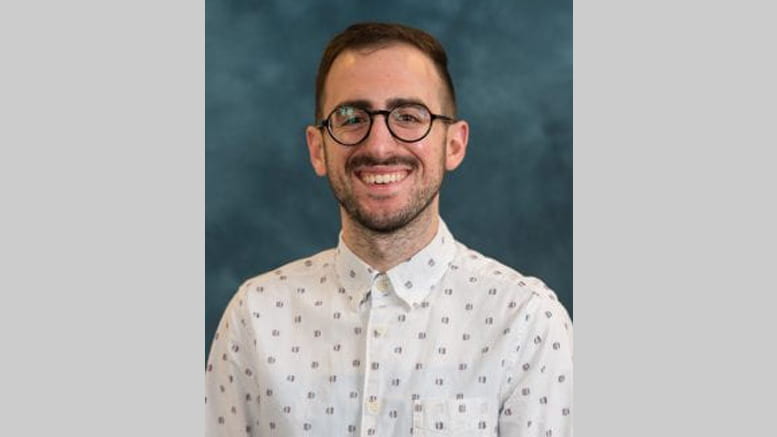Weinberg College welcomes Assistant Professor of Instruction Domenic DeSocio to the Department of German!
DeSocio recently gave some insight into his academic background, his area of study, and why he chose to teach at Northwestern.
Where are you from? Where did you study?
I grew up between Staten Island in New York City and the Jersey Shore. I graduated from Columbia University, where I double majored in German Studies and History. I then went immediately to the University of Michigan to pursue my graduate degree, completing in 2021 my PhD in German Studies. Fortunately for me, I was able to spend a few years during this period living in Berlin and studying at the Freie Universität Berlin as a visiting scholar.
Please describe your research.
A literary scholar of early 20th-century German-language literature, I focus on modernist fiction and in particular women and queer authors. My research centers how authors marginalized by gender and sexuality used fictional prose, narrative techniques, and style in their work to explore and articulate what it meant to be a “modern” woman and/or queer during a period of rapid change and turmoil. More broadly, I am interested in questions of queer style, aesthetics, and subjectivity on both sides of the Atlantic throughout the 20th century.
What inspired you to pursue your area of study?
I came to German by chance (it was the only language class that wasn’t fully enrolled during my first semester in college), but what really turned me on to German literature was the opportunity to study abroad in Berlin as a junior in college. Spending the whole year living in Germany and studying with other German students at the local university cultivated my love for this language and culture. One book in particular sparked my desire to study the history and culture of queer people: David Halperin’s How to Be Gay. Reading this book as a 20-year-old rewired my mind, as I had never thought about gay identity as something to be learned and acquired as a cultural practice rather than something simply inborn. It opened my eyes to the possibility of queerness as an object of study, especially as an ethical duty on my part to generate knowledge about and thereby contribute to my community.
What are you working on right now that excites you the most?
I’m at the very beginning stages of a new project which seeks to bring queer German film and literature to bear on theories of camp humor and style. How we think about “camp” as a concept is usually from an American or English perspective, with little attention paid to the non-English-speaking world. By introducing the German-language context to these discussion, I’m looking to reconsider the political and aesthetic stakes of camp as a practice of queer worldmaking, while also making the argument that camp must be considered a fundamental part of modern 20th-century German culture.
How do you enjoy spending your free time?
One of my favorite activities is book collecting! It’s thrilling to find rare first editions (especially when signed by the author!) of forgotten queer works of fiction from the 19th and 20th centuries; you can often find me scouring used bookstores throughout the city. I also love visiting the dog beach with my miniature dachshund Helen as well as working on my DJing skills—disco from the 1970s and 1980s is my favorite genre of music, so I’m excited to explore the dance and club scene in Chicago.
What is most fulfilling to you about teaching?
The best part of teaching for me are the relationships that students form with each other and with me over the course of the quarter. It’s so rewarding to take part in a community with students and constantly learn from them during class discussions—I’m always amazed by how smart, creative, and curious they are, from the questions they ask to the perspectives they bring to rather complex questions about art, life, and society. Being in the classroom with them is a daily opportunity to expand my own knowledge and challenge my views of the world.

